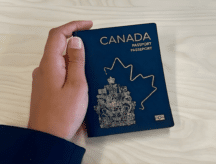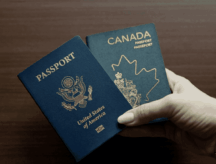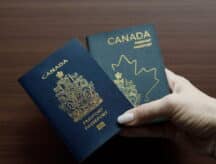Assessing Personal Suitability
Applicants who apply for a Canadian Immigrant (Permanent Resident) Visa under the "Skilled Worker/Professional" category are assessed according to a "points" system. Under current Federal Selection Criteria, applicants are awarded "units of assessment" for a number of objective factors, such as age, education, occupational background and language ability.
In addition, applicants may be awarded up to a maximum of 10 units of assessment under the somewhat discretionary "Personal Suitability" factor. An assessment as to "Personal Suitability" is supposed to reflect the applicant's likelihood to successfully settle in Canada. Among other things, Visa Officers are supposed to assess - in as objective a manner as possible - an applicant's adaptability, motivation, initiative and resourcefulness.
In a previous issue of this Newsletter, we commented on recent jurisprudence emanating from the Federal Court of Appeal on this subject. At that time, we suggested that the Court was demonstrating an increasing frustration with Visa Officers who award few "points" under Personal Suitability as a means of rejecting applicants who otherwise have objectively strong cases but, for some discretionary reason, are not deemed worthy of success by the particular Visa Officer.
Several recent decisions rendered by the Federal Court of Appeal on Personal Suitability are worth discussing in order to further explore this controversial area of law.
In Yan Luo v. Canada (Minister of Citizenship & Immigration), the applicant was a mere one or two units short of qualifying for an Immigrant Visa. In awarding the applicant relatively few units for Personal Suitability, the Visa Officer took into account the fact that the applicant had never been to Canada. The applicant appealed this decision.
In ruling in favour of the applicant, the Federal Court of Appeal made two interesting findings. Firstly, the Visa Officer should not have faulted the applicant for never having visited Canada. Although knowledge of Canada IS a factor to be considered when assessing Personal Suitability, the Judge held that a previous visit to Canada was not determinative of successful establishment in Canada.
Having concluded that one of the Visa Officer's main concerns was in fact not relevant, the Judge held that this mistake was all the more exacerbated by the fact that the applicant only needed one or two units to qualify.
However, in Khodabaksh Mehrabani v. Canada (Minister of Citizenship & Immigration), an applicant had been awarded 69 units -- one unit short of the 70 units required to qualify. The Visa Officer had awarded the applicant only 5 (out of a possible 10) units for Personal Suitability.
The applicant appealed the decision to the Federal Court of Appeal, which proceeded to reject the applicant's appeal. Essentially, the Judge held that the Visa Officer was in the best position to assess the applicant's Personal Suitability. Having determined that the Visa Officer had evaluated all reasonably relevant factors (such as the applicant's motivation and initiative), the Judge concluded that it was not appropriate for him to substitute his own opinion for that of the Visa Officer. Contrary to Luo, the Court was not concerned with the fact that the applicant was only one unit short of qualifying.
Finally, in Ramzan Panjwani Ali v. Canada (Minister of Citizenship & Immigration), the applicant had been assessed as an "accountant." The National Occupational Classification - the guideline which Visa Officers use to assess the qualifications of applicants - stipulates that accountants must become accredited in Canada in order to practice their professions. The Visa Officer refused the applicant on the grounds (among other things) that the applicant had made no effort to learn about how to become accredited as an accountant in Canada. The applicant appealed this decision.
Once again, the Federal Court of Appeal ruled against the applicant. The Court agreed that to be assessed as an accountant the applicant should have at least enquired as to Canadian certification requirements. Moreover, the Judge concluded that "it was clear that his failure to take any steps to fulfill the requirements for the practice of his profession in Canada had an important impact on" the Visa Officer's view of his Personal Suitability.
Prospective Skilled Worker/Professional applicants would be well-served to take notice of the significant implications of the above decisions. If nothing else, these cases demonstrate that when it comes to determining Personal Suitability, it is difficult to establish any hard and fast rules. Rather, every case must be assessed on its own particular merits.
- Do you need Canadian immigration assistance? Contact the Contact Cohen Immigration Law firm by completing our form
- Send us your feedback or your non-legal assistance questions by emailing us at media@canadavisa.com



